Why This Agribusiness Graduate Left the US to Build a Farmer-First Makhana Brand in Bihar
Are you someone who snacks on makhana often?
What if I were to let you in on a secret — every makhana ordered from ‘Pearl Mithila Makhana’, a brand started in Bihar’s Darbhanga in 2020, is handpicked and undergoes a rigid, meticulous and manual screening before it’s deemed fit for you.
Pratibha Bondia Kheria, the entrepreneur behind the venture, is keen that you get your money’s worth. At the heart of her endeavour is the intent to do right by her customers — young mothers make up a majority — and the farmers of Darbhanga, who, for years, have been losing out on their dues as middlemen monopolised a large share of the profits.
In Bihar, makhana — the popped kernels of the seeds of the prickly water lily plant — isn’t just a tea-time snack. It’s a member of the family, one that demands a seat at the table. Pratibha was privy to its fanfare soon after marrying into Darbhanga in 2018. Bihar’s makhana, she deduced, wasn’t just a local hero but drove the majority — 85 percent — of India’s production.
Pratibha had an idea. Why not champion a brand around the state’s indigenous crop?
This, while enabling her to further Bihar’s native makhana legacy, would also help effect grassroots changes among farming communities, the thought that had inspired her move to India in 2010 following a master’s in agribusiness management in the United States. Internships across organic farms in California introduced her to ethical farming practices — a prism through which she began to view the world’s food industries. “Farming practices are native to their regions. I decided to get back to my roots in India,” Pratibha explains her move.
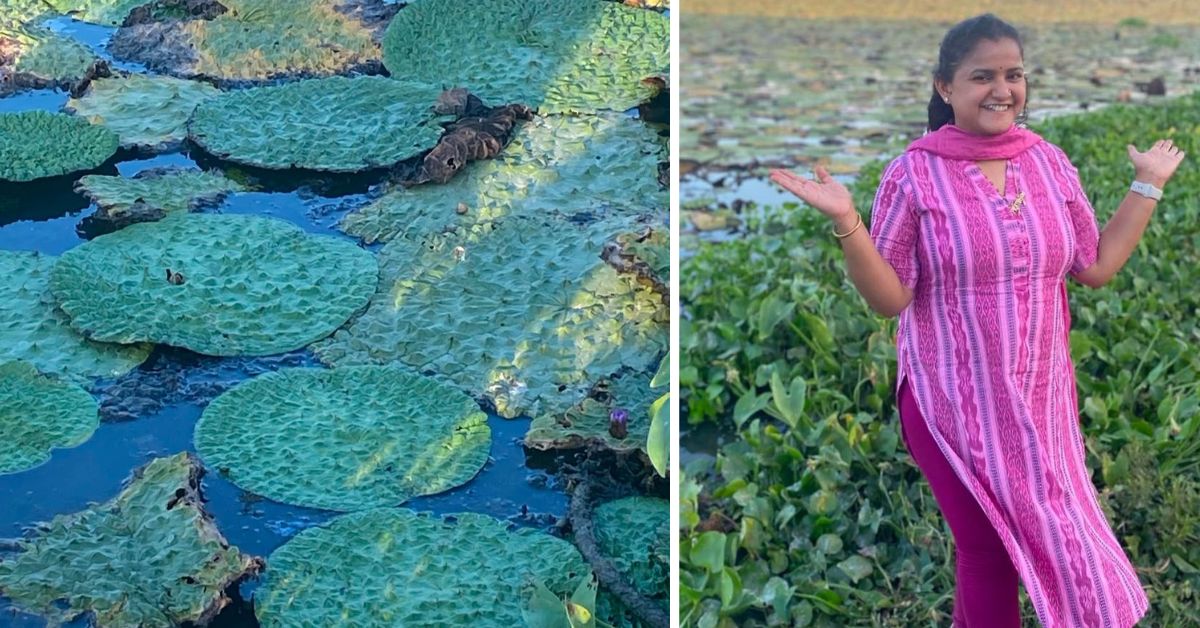 Pratibha Bondia Kheria, the entrepreneur behind Pearl Mithila Makhana that is based in Darbhanga Bihar
Pratibha Bondia Kheria, the entrepreneur behind Pearl Mithila Makhana that is based in Darbhanga Bihar
From 2010 to 2018, she travelled across India, conducted training lectures at the Indian Council of Agricultural Research (ICAR), Delhi and the National Centre for Organic and Natural Farming, Uttar Pradesh — where she also took a certification course in organic farming. She wanted to understand farmers, familiarise herself with the country’s agrarian models, and dialogue with agricultural research officers; these experiences gave her a palpable sense of the gaps her makhana startup could bridge.
A fair-trade inspired makhana model
Ponds and oxbow lakes decorate the landscape of Bihar. Large, circular, green carpets galvanise their surfaces. And hidden below these leaves of the water lily plant are the makhana.
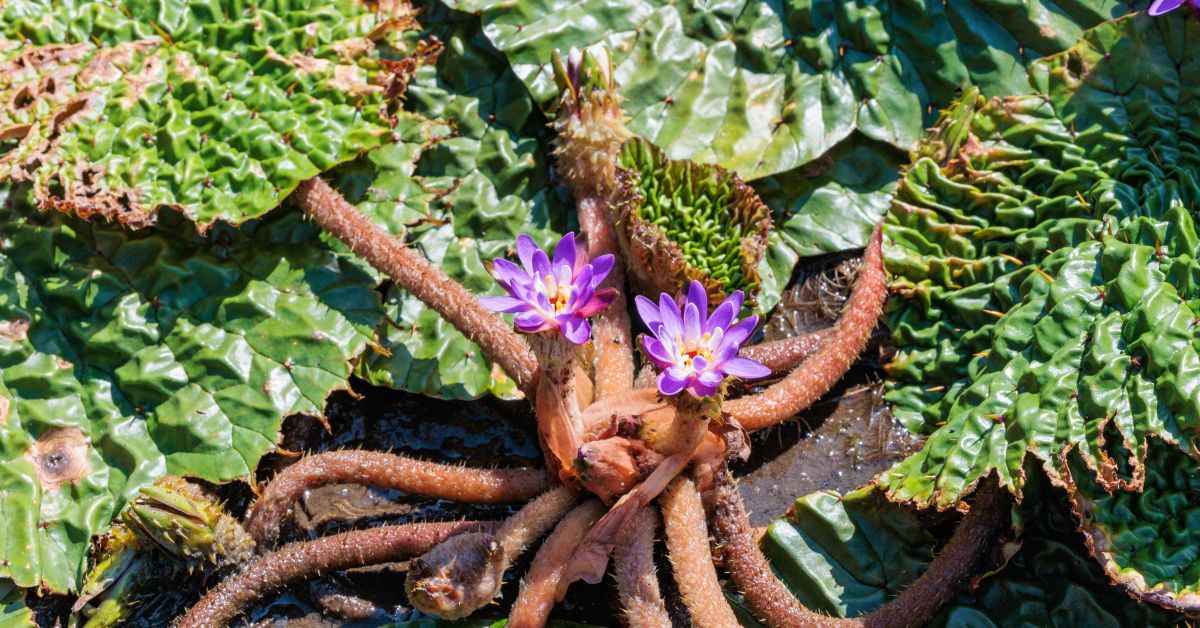 Makhana are the edible seeds of the water lily that grows in stagnant ponds and wetlands
Makhana are the edible seeds of the water lily that grows in stagnant ponds and wetlands
With a history dating back thousands of years, the fox nut is quite the cultural ambassador that’s created inroads into domestic and international markets. Bihar’s love affair with the makhana is a tale as old as time, specifically as old as the 18th century, when, under the kingship of the kings of Darbhanga, it was cultivated in Darbhanga and Madhubani in the Mithilanchal region of Bihar. From then to now, the earthy nut has grown in fame, earning the name of ‘black diamond’ — the fluffy white kernel is enveloped by a black shell — and in 2022 was awarded a GI tag recognition, which grants exclusivity to the Mithilanchal Makhana Utpadak Sangh, protecting farmers from unauthorised exports and misuse.
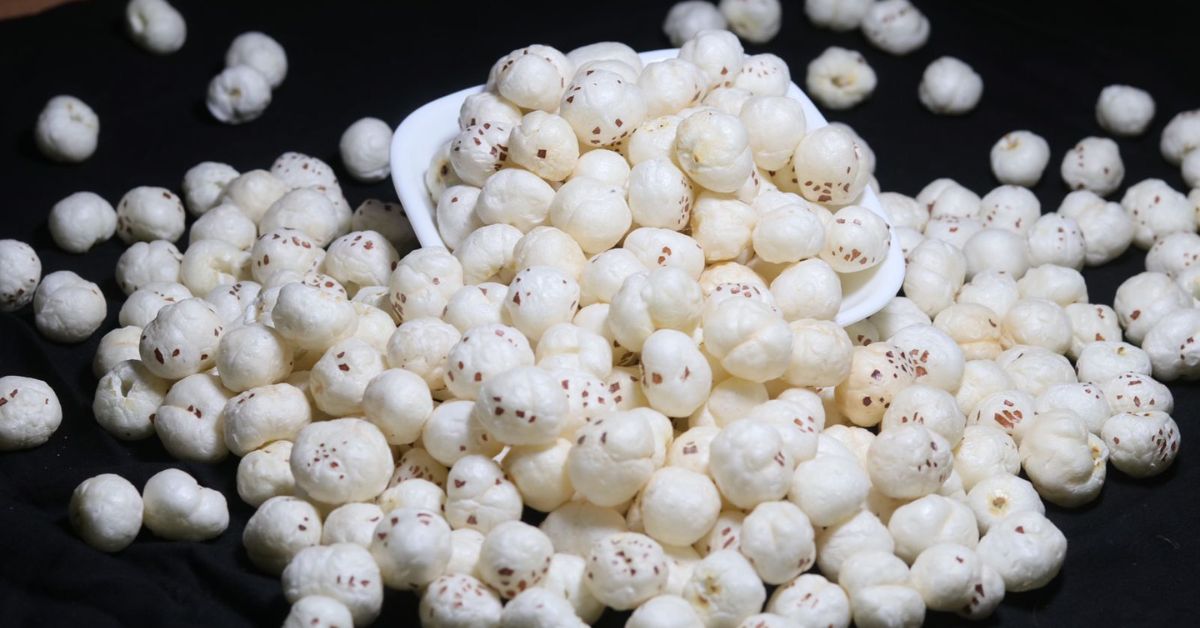 Makhana was awarded a GI tag recognition in 2022
Makhana was awarded a GI tag recognition in 2022
With an airy crunch and nutty profile, makhanas bend to the will of the food they’re introduced into, sometimes seasoned with aromatic spices, other times added to salads, chaat (street food) and even kheer (a sweet rice pudding).
If you were to trace the makhana’s journey, starting at the muddy ponds of Bihar to your snack bowl, you’d see why it’s a coveted luxury. The BBC documented the journey of the men, like one Phool Dev Shahni, who dive into intrepid waters to procure the makhana seeds. Shahni, who comes from a long line of makhana procurers, spoke of the ordeal of standing in eight-foot deep muddy ponds for hours, only “coming to the surface to breathe after 8 to 10 minutes”, all in the endeavour to secure the prize — nuts high in B vitamins, protein and fibre, from their precarious submerged position inside the pod of a water lily plant.
This calls into question the premise of price, pointing out why makhana do come at a cost. “This is why our makhana might seem slightly expensive; we aren’t even using any machinery in the process, we ensure everything is done manually,” Pratibha explains. An important learning during her master’s degree was that if something is cheap, there is someone else paying the price for it. She wanted to ensure her brand wasn’t part of the rat race.
What goes into makhana processing?
Pratibha’s journey to starting Pearl Mithila Makhana involved experiences of wading into muddy waters to engage with the farmers, documenting the laborious process of collecting the makhana seeds, and familiarising herself with the locals’ cultural nuances. Only when the ice was broken could she broach the subject of a collaboration. But ever since bonds were forged, they’ve been going strong.
Take Mahesh ji for instance. He’s one of the 500 farmers who have been associated with Pratibha for years now. The payment is seasonal, Mahesh ji clarifies, adding, however, that he is earning more than he was previously getting when there were other middlemen involved. Pratibha corroborates the figure to be a 30 percent increase.
“Before we got associated with Pearl Mithila Makhana, we used to sell our makhana to some buyers. They would sell it locally. Now, our makhana is reaching everywhere,” he shares. Makhana farming is the pride of Mahesh ji’s ancestral line — “My great-grandfather also did this. Now I am doing it.”
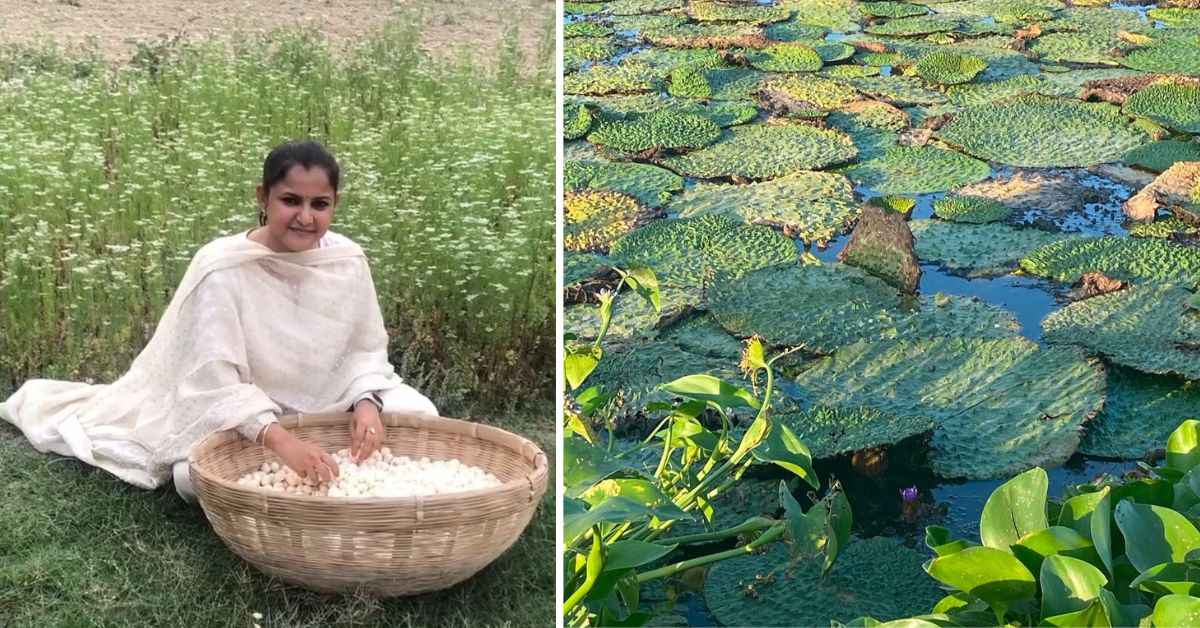 Pratibha’s journey to starting Pearl Mithila Makhana involved experiences of wading into muddy waters to engage with the farmers, documenting the laborious process of collecting the makhana seeds,
Pratibha’s journey to starting Pearl Mithila Makhana involved experiences of wading into muddy waters to engage with the farmers, documenting the laborious process of collecting the makhana seeds,
August to November is a busy time for him, as this is the period when the makhana seeds are harvested. The rest of the year, farmers would see a lull in activity. But not anymore. Pratibha’s brand keeps them busy. Farming families, especially the women, are engaged in the makhana post-harvesting that unfolds at the factory outlet, where the seeds are sun-dried to render them a longevity to survive transport.
The seeds are graded using a sieve to separate them according to sizes. Then follows tempering to loosen the kernel within and have it pop out of the black coloured seed. The makhana is then once again cleaned and hand-sorted into sizes and makes its way to you. A bestseller is the rasgulla makhana, which measures around 22 mm, Pratibha notes, adding that this is a favourite of mothers who have young children. But, she points out, “This is also the most difficult one to procure. In a 100 kg batch of makhana, 1 kg turns out to be this size.” The process is labour-intensive.
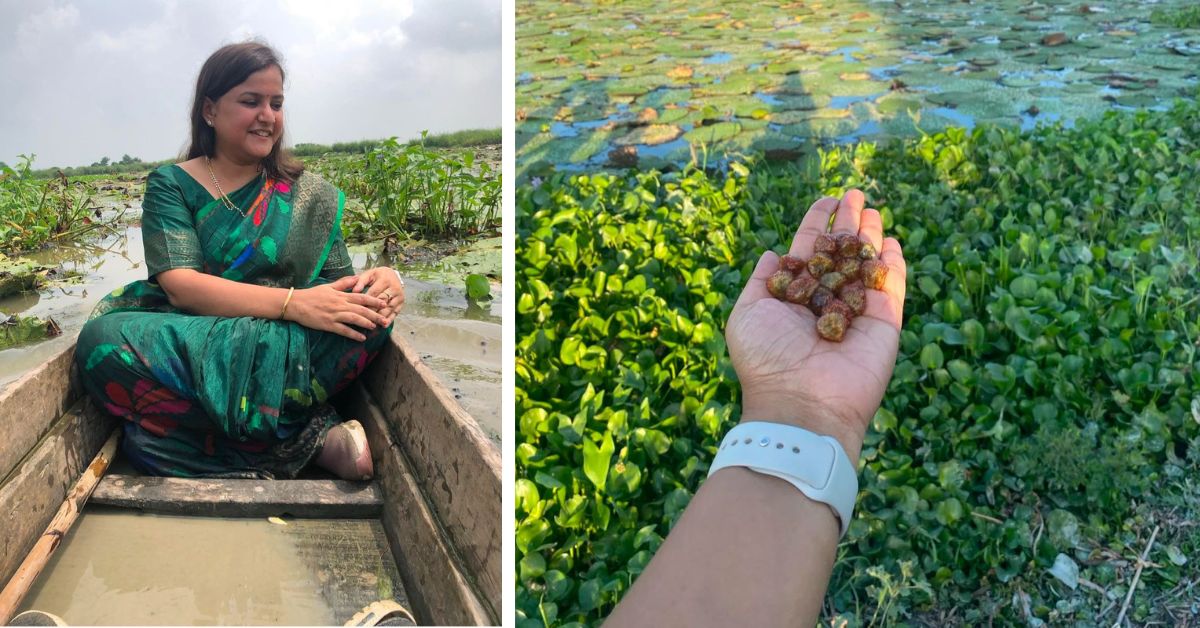 Rich in carbohydrates, fibre, plant-based protein, nutrients including magnesium, potassium, phosphorus, iron and zinc, makhana is a superfood
Rich in carbohydrates, fibre, plant-based protein, nutrients including magnesium, potassium, phosphorus, iron and zinc, makhana is a superfood
While she is thrilled to have farmers be a part of her brand, Pratibha also helps them start brands of their own, particularly if they have children who are savvy with using Instagram and Facebook. “There is no compulsion to sell to us. Even beyond the makhana procurement, I help them with their children’s education and marriages. I just want to empower them in every way I can,” she says.
Rich in carbohydrates, fibre, plant-based protein, nutrients including magnesium, potassium, phosphorus, iron and zinc, makhana is a superfood and Pratibha, as a mother, is glad her brand is helping guide mothers’ health-conscious snacking choices for their children. “When I returned from the United States, I did it intending to learn organic farming. Growing up, I would often go to the vegetable markets and observe how most of the vegetables were often left in a pitiable condition, but clothes in a boutique shop would be treated so well. I wanted to do something around food habits and produce.”
This sentiment guided her career choices.
So, go ahead and order your batch of makhana here. And remind yourself of the adventurous journey they have had to find you.
Edited by Khushi Arora, All pictures courtesy Pratibha Bondia Kheria
Sources
News